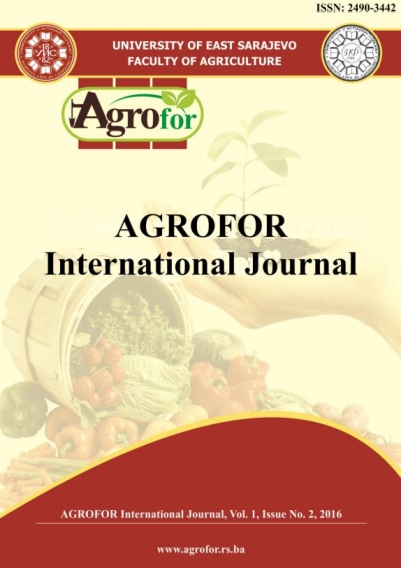SPATIAL STRUCTURE OF THE LIPIZZAN HORSE GENE POOL BASED ON MICROSATELLITE VARIATIONS ANALYSIS
DOI:
https://doi.org/10.7251/AGRENG1602125KAbstract
The aim of this study was to determine the current state of genetic diversity
and to assess the substructure and spatial structure at individual level based on
analysis of microsatellite variations within Lipizzan horse population. The genomic
DNA samples were obtained from totally 418 horses, originating from Slovenian
(357) and Slovak (61) studs. A set of 13 microsatellite markers (AHT4, AHT5,
ASB2, HMS1, HMS2, HMS3, HMS6, HMS7, HTG10, HTG4, HTG6, HTG7, and
VHL20) have been used for analysis of genetic variability. Across all microsatellite
loci the average number of alleles 6.65 and effective allele number at level 3.37
were found. The obtained Shannon's information index (I=1.37) indicated high
degree within population genetic diversity. The prevalence of heterozygous
genotype in sample confirmed also the average value of observed heterozygosity
(Ho=0.67) and FIS index (-0.026). The most of the genetic variation in sample was
conserved within individuals (95%) and the subdivision of horse populations
explained only 4%. Similarly, the obtained pairwise values of FST index (0.02) and
Nei's genetic identity (0.90) reflected mainly common ancestors used in breeding
history of both population. But the principal coordinate analysis showed the
division of individuals into the two separate clusters according to the studs where
they come from. The membership probability resulted from spatial structure
analysis suggested that the frequencies of alleles varied across the two regions that
indicated the evidence of strong distinction in relation to the current breeding status
of analysed populations and strategy of studs.

